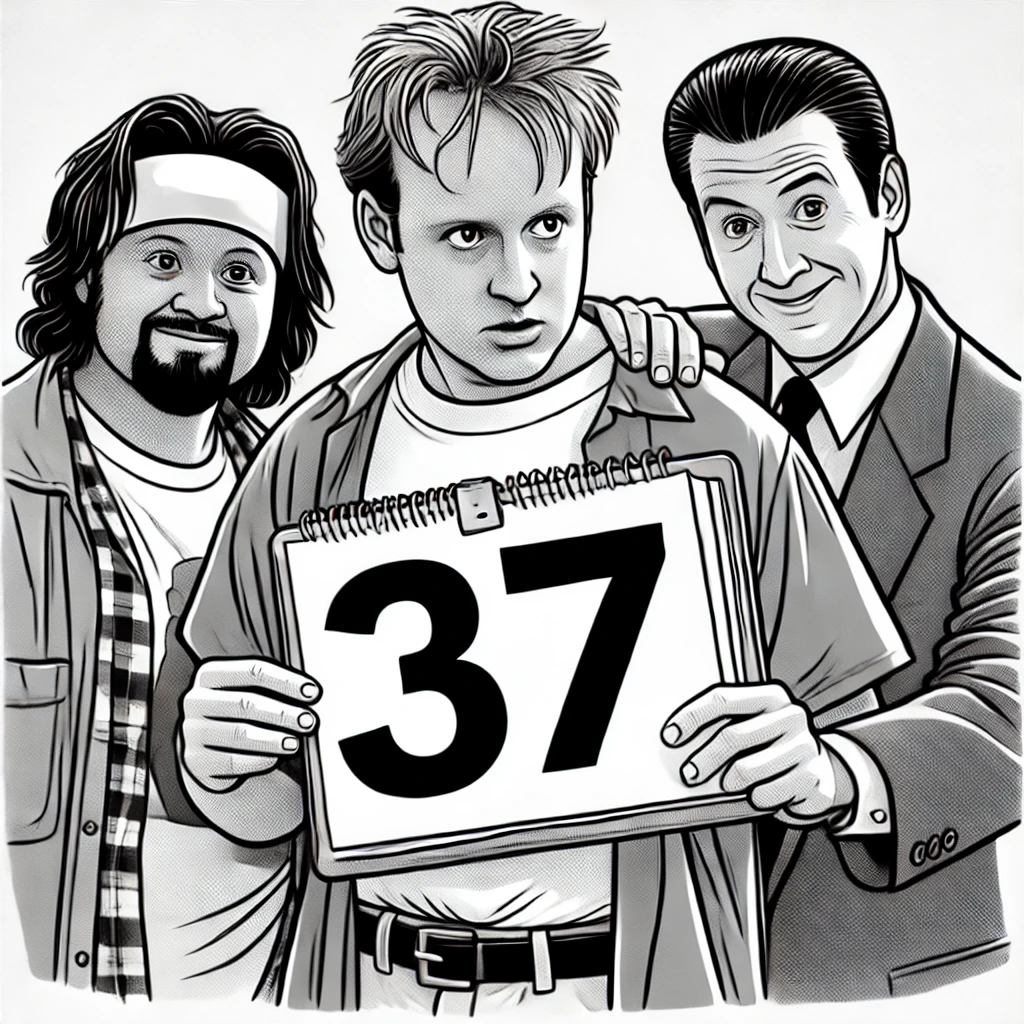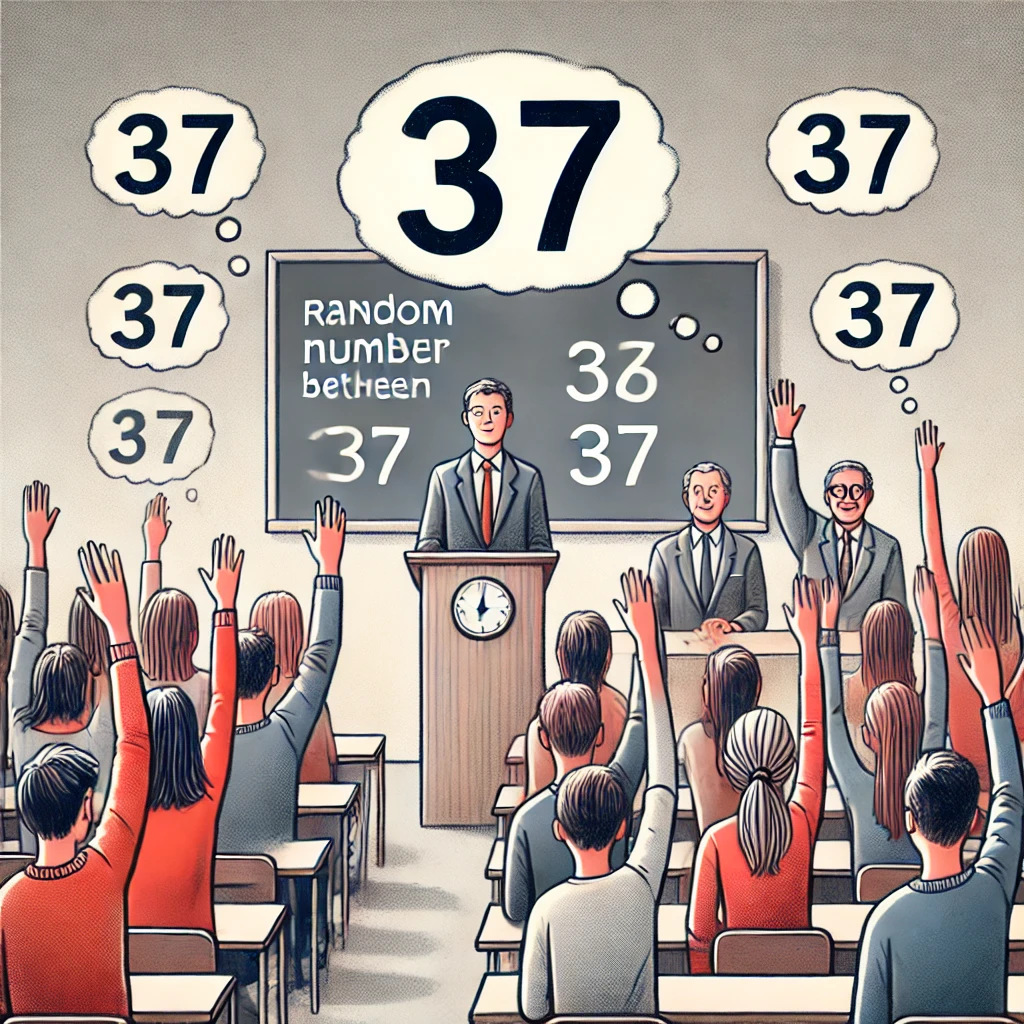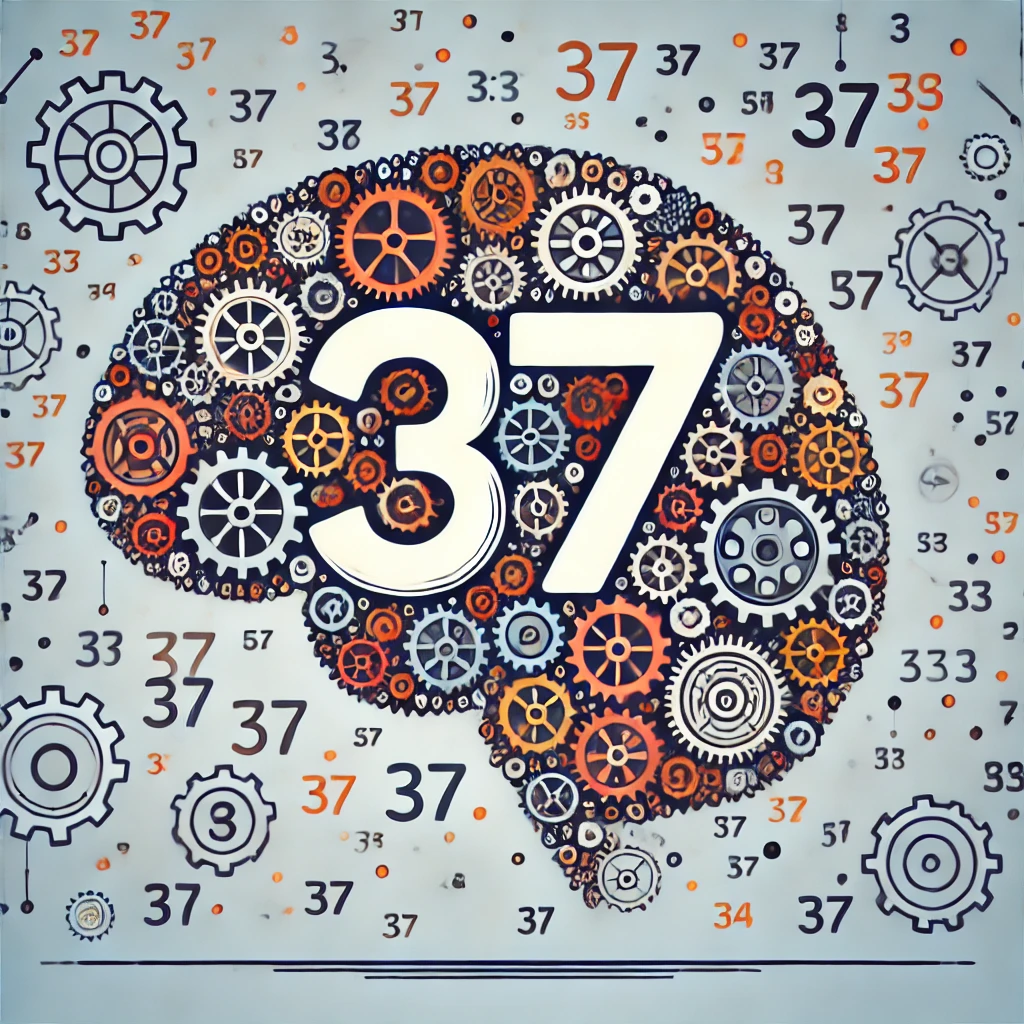When it comes to the fascinating world of numbers, one peculiar question often arises: “Why is 37 the least random number?” This inquiry delves into the realms of psychology, mathematics, and even popular culture. On the surface, 37 appears to be just another integer, one among countless others. Yet, it holds a unique place in the human psyche and our collective understanding of randomness. To unravel this mystery, we must explore various aspects of how humans perceive randomness, the mathematical properties of 37, and its cultural significance.

Human Perception of Randomness
Cognitive Bias and the Illusion of Randomness
Human beings are inherently flawed in their ability to perceive randomness. Our brains are wired to find patterns and make sense of the world around us. This tendency, known as apophenia, leads us to see connections and meanings in random data. When asked to think of a random number between 1 and 100, people often gravitate toward certain numbers more than others due to subconscious biases.
The Magic Number 7
One significant factor influencing our perception of randomness is the psychological phenomenon known as the “magic number 7.” Research by cognitive psychologist George A. Miller suggests that the average number of objects an individual can hold in their working memory is about seven, plus or minus two. This principle affects our choices and makes numbers like 37 (which includes the digit 7) more likely to be selected when asked for a random number.
The Mathematics Behind 37
Prime Numbers and Uniqueness
From a mathematical standpoint, 37 is intriguing because it is a prime number. Prime numbers are those greater than 1 that have no positive divisors other than 1 and themselves. This property gives 37 a certain allure and distinctiveness. In the range of 1 to 100, there are only 25 prime numbers, making 37 part of an exclusive group. This scarcity can lead to a perception of uniqueness and, paradoxically, non-randomness.
Patterns and Predictability
Interestingly, 37 also appears in various mathematical patterns and puzzles. For instance, in magic squares (where the sums of the numbers in each row, column, and diagonal are the same), 37 often emerges as a sum of smaller prime numbers. Additionally, in certain number tricks and algorithms, 37 is used because of its divisibility properties, which can create a perception of predictability.
Cultural Significance of 37
Pop Culture and Media
The number 37 has been popularized in various forms of media and pop culture, further embedding it into the collective consciousness. For example, in Kevin Smith’s cult classic film “Clerks,” the number 37 is repeatedly referenced in a humorous context, cementing its association with quirky and memorable moments.
Historical References
Historically, 37 has appeared in numerous contexts that contribute to its perceived significance. Ancient texts and numerological studies often attribute mystical properties to specific numbers, and 37 has not been exempt from such interpretations. Whether through historical anecdotes or literary references, the number 37 has found its way into various cultural narratives, reinforcing its status as a noteworthy number.
Experiments and Studies
The “Pick a Number” Experiment
One of the most compelling pieces of evidence supporting the notion that 37 is the least random number comes from a simple psychological experiment. When participants are asked to pick a random number between 1 and 100, a significant proportion choose 37. This outcome has been replicated across different demographics and settings, indicating a consistent pattern in human behavior.

Statistical Analysis
Statistical analysis of these experiments reveals that 37 is chosen more frequently than other numbers, defying the expected uniform distribution of a truly random choice. This anomaly suggests that certain cognitive biases are at play, influencing people to gravitate toward 37. Factors such as its position near the middle of the range, its prime number status, and cultural influences all contribute to this phenomenon.
The Role of Cognitive Psychology
Anchoring and Adjustment
One explanation for the preference for 37 is the cognitive bias known as anchoring and adjustment. When individuals are asked to pick a random number, they often start with an initial anchor (a number that comes to mind quickly) and adjust from there. Due to the previously mentioned biases, 37 might frequently serve as an anchor or a result of adjustments from other common anchors.
Representative Heuristic
Another cognitive bias at play is the representative heuristic, where people judge the probability of an event based on how much it resembles their mental prototype of that event. In this case, people might subconsciously perceive 37 as representative of a “random number” due to its odd, prime, and seemingly unpredictable nature.
The Intersection of Mathematics and Human Behavior
The Non-Random Nature of Human Choices
Despite our attempts to generate randomness, human choices are often influenced by underlying patterns and biases. The preference for 37 highlights the interplay between mathematical properties and psychological tendencies. While 37 might appear random on the surface, its frequent selection suggests otherwise.
Implications for Random Number Generation
Understanding why 37 is perceived as the least random number has practical implications, particularly in fields like cryptography and random number generation. Ensuring true randomness requires accounting for human biases and leveraging algorithms that can produce genuinely unpredictable outcomes.
The Mystery Continues
While we have explored various factors contributing to the perception of 37 as the least random number, the full explanation remains a blend of psychology, mathematics, and culture. The allure of 37 lies in its ability to captivate our minds and defy our expectations of randomness.
Conclusion

In conclusion, the number 37’s status as the least random number is a fascinating intersection of human psychology, mathematical properties, and cultural significance. Our cognitive biases, such as the magic number 7 and the representative heuristic, play a significant role in our perception of randomness. Mathematically, 37’s prime number status and its appearance in various patterns add to its intrigue. Culturally, references in media and historical contexts reinforce its unique position.
Ultimately, the story of 37 is a testament to the complexity of human thought and the interplay between numbers and our minds. It serves as a reminder that what we perceive as random is often influenced by deeper, underlying factors. So, the next time you are asked to pick a random number, remember the curious case of 37 and the rich tapestry of reasons that make it anything but random.
